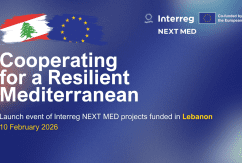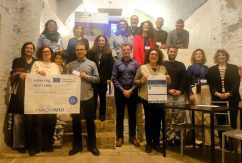Interreg NEXT MED Programme announces upcoming first call for proposals

The Managing Authority of the Interreg NEXT MED Programme, in agreement with the representatives of the 15 participating countries, is pleased to announce the upcoming first call for proposals set to be launched by mid-November.
With a substantial budget of €103.6 million, this call represents a unique opportunity to fund transnational cooperation projects aimed at catalyzing positive transformations, nurturing collective progress, and encouraging sustainable and inclusive development throughout the Mediterranean area.
Following the broad ambition of making the region smarter and more competitive, greener and climate resilient, more social and inclusive, and better governed, the call focuses on pivotal themes for both shores of the Mediterranean: these encompass boosting research and innovation capacities, fostering SME growth, advancing renewable energy solutions, bolstering climate change adaptation measures, promoting educational opportunities, ensuring access to high-quality healthcare, and enhancing local governance processes, among others.
Geographical coverage of the call extends to over 90 territories from 7 EU and 8 partner countries, namely Cyprus, Greece, France, Italy, Malta, Portugal, Spain and Algeria, Egypt, Israel, Jordan, Lebanon, Palestine, Tunisia and Türkiye.
Recognizing the unique added value of working together beyond borders for the development of the Mediterranean area, each project has to be submitted by a partnership representing a minimum of 3 organizations from 3 different eligible countries, including at least one Mediterranean Partner Country. A diverse array of stakeholders, including national and regional public authorities, municipalities, non-profit/civil society organizations, universities, research organizations, private companies and other relevant entities.
Depending on the type of projects foreseen for this call – thematic, youth-oriented and governance – the EU financial support will range from €500,000 to €2.5 million. The EU contribution cannot exceed 89% of the project total eligible costs and the project co-financing must be at least 11% of the total eligible costs.





























 Syria
Syria 





